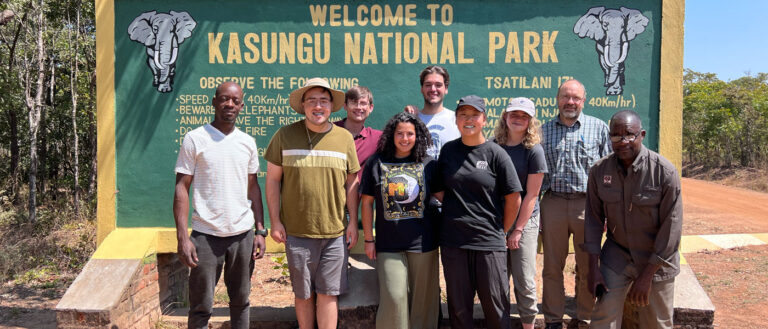A group of Case School of Engineering students are bringing power to isolated parts of Malawi in Africa.
In Kasakula, a village just outside of the Kasungu National Park where Case Western Reserve University students brought power to park ranger living quarters in 2021, a Humanitarian Design Corps (HDC) team is putting the finishing touches on a solar powered community charging station.
“Right now, community members are walking several miles to a charging station,” Grace Shin, a third-year chemical engineering student and the team lead, shared. “This project will allow them to have better access to electricity right in their village.”
Providing power
What are the key items villagers are charging? Their cellphones, for one, but also their household batteries, which Shin describes as batteries the size of a car battery used to power the lights and appliances in their homes.
At existing charging stations, villagers are paying 100 kwacha, about 10 cents in U.S. dollars, which is a considerable portion of their income. While the newly constructed station will incur a fee, CWRU students developed a plan in partnership with the village’s National Resources Committee to ensure that the money spent to charge would stay in the community and be used for maintenance.
During their week in Malawi, the team of six worked on training the Natural Resources Committee on using the stations—charging and removing devices, determining when batteries would run out of power and how to maintain the solar panels. Just over a month after the team returned to Cleveland, the electrical installation was completed, opening the system for business.
Read more about their efforts on the Case School of Engineering website.


